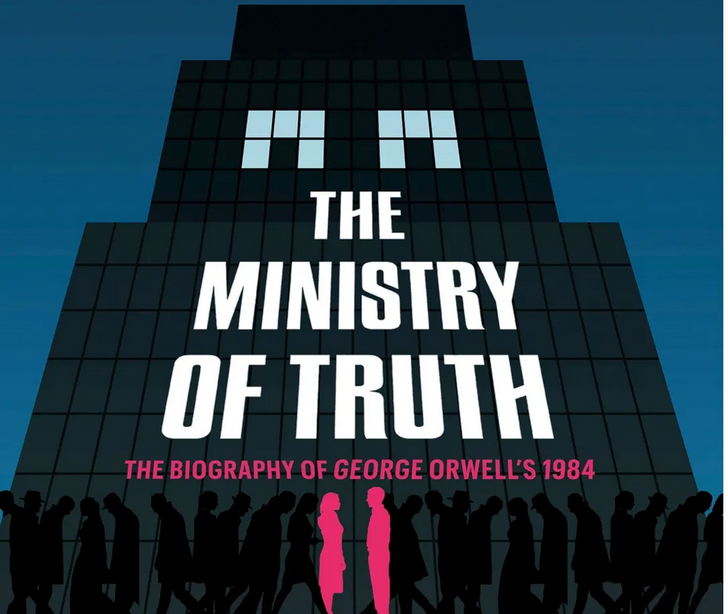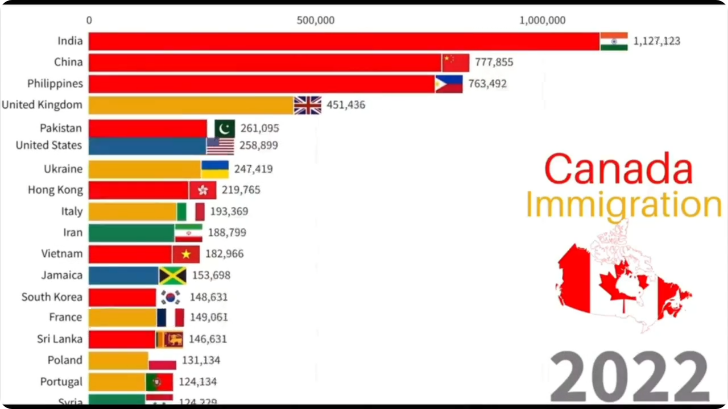Tasting History with Max Miller
Published Mar 8, 2024The Mythical Kitchen Cookbook by Josh Scherer: https://amzn.to/49Se1qZ
June 17, 2024
5 Foods that Changed Fast Food Forever (ft. @mythicalkitchen)
QotD: Philosophy
Wen considered the nature of time and understood that the universe is, instant by instant, recreated anew. Therefore, he understood, there is in truth no past, only a memory of the past. Blink your eyes, and the world you see next did not exist when you closed them. Therefore, he said, the only appropriate state of the mind is surprise. The only appropriate state of the heart is joy. The sky you see now, you have never seen before. The perfect moment is now. Be glad of it.
Terry Pratchett, excerpt from “The Life of Wen the Eternally Surprised”, Thief of Time, 2001.
June 16, 2024
Mao Tightens His Grip – WW2 – Week 303 – June 15th, 1945
World War Two
Published 15 Jun 2024After several weeks of the Congress of the Chinese Communist Party, Mao Zedong’s power has consolidated to the point that it is absolute. All pledge loyalty Mao, and his infallibility shall not be questioned. Meanwhile the war goes on in the field with Australian landings on Brunei, continuing fighting on Okinawa, and the last part of Europe — in the Netherlands — liberated from Axis control.
(more…)
“What the hell is going on in Canada?”
If you’re not Canadian or have any Canadian friends, you may not understand just how badly broken the country is — and the federal government is still desperately pretending that we’re all onboard with the Net Zero/Carbon Tax/”you’ll own nothing” bullshit and piling on the long-term debt:
One of Canada’s intelligence agencies, a couple of months ago, sent a memo to the Liberal federal government informing them that, in the near-future years to come, they are worried about revolutionary activity. I believe Canada is a good case study because it seems the country has been a sociological testing ground for the powers that be to see what happens. Canada is a surreal twilight zone where it feels like every psyop known to man is hurled its way. Canada unquestionably has the worst demographic and immigration issues, the worst housing issues, the worst social stability, and upwards mobility issues, all adjusted and proportional to its population and size, of course. For our purposes, I believe Canada serves as the worst-case scenario of how bad the dating market can be, and how bad it will continue to get.
Canada has some of the lowest upward social mobility among developed nations, especially for young people, particularly within the OECD and G8. This means that young people in Canada find it relatively difficult to move up the economic ladder compared to their parents.
In 2022, Canada’s population growth was significantly driven by immigration. According to Statistics Canada, approximately 95% of the population growth in that year was attributed to immigration. This includes both permanent and temporary residents, with a notable influx of international students, temporary workers, and permanent residents. Only a meagre 5% of Canada’s population growth, including recent immigrants, was from organic growth and childbirth. Below are the national origins of immigrants over the last twenty-four years. The combined total number of people entering Canada per year, including international students, temporary foreign workers, legal immigrants, and refugee claimants, is approximately 1,133,770 individuals officially. In reality, the government over the last four years has lost count.
As of April 2024, the average home price in Canada is approximately CAD $703,446. This is €477,121.93 and USD $511,466.93. Would you like to see what $703k CAD can get you in France? Hint: a lot more than in Canada.
This has been noticed so much by Canadians that it is now a meme, with Conservative Party and opposition leader Pierre Poilievre pointing it out in the House of Commons. You can compare the price of homes and the cost of living with Canadian wages. You can also compare how far those meagre wages would go in other first-world countries like France, Germany, or Sweden. The answer is much farther. Much, much farther. There is currently no hope, short of radical action by the government unheard of in Canadian history, for this situation to be rectified. The only other option is best left unsaid.
“Educated” Women Lead
In Canada, among ethnic Canadians, a significant portion of the female population is more educated and makes more money than Canadian men. Canadian men make, on average, CAD $48,500, while women make CAD $42,000. However, only 56% of men have post-secondary education, while 68% of women do. Men have completed higher levels of high school, and women have completed higher levels of college or university. This has led to a massive gap in socioeconomic status between men and women. It gets worse when you include non-ethnic Canadians. Completed levels of post-secondary education for men remain at 56%, while women’s rise to 73%.
We know that in our post-industrial world, resources translate to money. Money and completed levels of education translate to status. Women are 50% more likely to divorce men when they make more money. When women are already the initiators of divorce 70% of the time, it starts looking pretty ugly, fast.
What People Ate on Ellis Island
Tasting History with Max Miller
Published Mar 5, 2024A complete Ellis Island meal: Tapioca Pudding, coffee, Beef and Barley Soup, and white bread.
City/Region: United States of America
Time Period: 1887The food on Ellis Island could be pretty good or pretty terrible depending on when you were there. The quality went up and down a lot, but the food was always free to those who were staying on the island. A menu for the midday meal on Tuesday, January 20, 1920 lists English Beef Soup with Barley, Lamb Stew with Vegetables, Bread and butter substitute, Tapioca Pudding, Coffee. This recipe doesn’t use a lot of meat, but the marrow melts into the broth and there are plenty of vegetables and flavor, making for a hearty soup.
Beef Soup
Select a small shin of beef of moderate size, crack the bone in small pieces, wash and place it in a kettle to boil, with five or six quarts of cold water. Let it boil about two hours, or until it begins to get tender, then season it with tablespoonful of salt, and a teaspoonful of pepper; boil it one hour longer, then add to it one carrot, two turnips, two tablespoonfuls of rice or pearl barley, one head of celery and a teaspoonful of summer savory powdered fine; the vegetables to be minced up in small pieces like dice. After these ingredients have boiled a quarter of an hour, put in two potatoes cut up in small pieces; let it boil half an hour longer, take the meat from the soup, and if intended to be served with it, take out the bones and lay it closely and neatly on a dish, and garnish with sprigs of parsley.
Serve made mustard and catsup with it. It is very nice pressed and eaten cold with mustard and vinegar, or catsup. Four hours are required for making this soup. Should any remain over the first day, it may be heated, with the addition of a little boiling water, and served again. Some fancy a glass of brown sherry added just before being served. Serve very hot.
— The White House Cook Book, 1887.
QotD: Napoleon Bonaparte – the great man?
John: … I think my favorite big picture thing about the Roberts book [Napoleon the Great] is the way it cuts through two centuries of Anglophone ignorance and really shows you why the continent flung itself at this man’s feet. The pop culture image of Napoleon as this little bumbling dictator is so clearly a deliberate mystification by the perfidious British who felt inadequate in the shadow of this guy they (barely) beat.
Remember, the real Napoleon was so impressive he literally caused a crisis in 19th century philosophy! Everybody had carefully worked out their little theories, later exemplified by Tolstoy, about how human agency doesn’t matter in history and everything is just the operation of vast impersonal forces like the grinding of tectonic plates, and then boom this guy shows up and the debate springs to life again. You know it’s real when two guys as different as Nietzsche and Dostoevsky are both grappling with what we can learn from somebody’s existence. And I think Raskolnikov’s unhealthy Napoleon fanboyism was supposed to be a bit of a satire of some very real intellectual currents among the European and Russian intelligentsia.
So what do you think? Does Napoleon vindicate the great man theory of history? I’m still working out my own answer to this, which I briefly allude to in my review of Zhuchkovsky’s book. Basically, I think we can transcend the traditional dichotomy by constructing a political/military analogue of the Schumpeter/Kirzner theory of entrepreneurship. Vast, impersonal forces (such as technological progress or structural economic changes) can create opportunities — in fact they’re pretty much the only thing that can, because the force required to reconfigure society is usually far beyond what any person or group can manage.
But once the opportunity is there, it takes a lot less raw power to act on it, assuming you can recognize it. Imagine a process of continental drift that slowly, slowly raises a mountain-sized boulder out of the ground, and every year it’s inching closer to this precipice, until finally it teeters on the edge. A human being could never have done that, it would be far too heavy, but once it’s up there, there might be a narrow window, a few precious moments, when a solid shove by somebody sufficiently perceptive and motivated can direct and harness this unimaginable force.
So the question is: what made Europe so ripe for Disruption (TM) at that moment? Obviously the French Revolution, and there were some pretty important changes in the nature of warfare too. What else?
Jane: Well, you know what I’m going to say: it’s the Enlightenment, stupid.
I was going to compare Napoleon to, say, Odoacer, but I don’t think the analogy actually holds. The Goths were conquerors from outside; their approach, their whole worldview, was very different from the Romans’.1 But Napoleon is extremely inside. The people he comes from are not actually all that different from the ancien régime — they’re feuding hill clans, but they’re aristocratic feuding hill clans — and yet he’s so thoroughly a creature of Enlightenment modernity that even when he’s engaging in the time-honored feuding hill clan pastime of resisting integration by the metropole he’s doing it by writing pamphlets. He might be a Corsican nationalist but he’s been intellectually colonized by France. Or, more accurately, by the elements of French culture that are in the process of undermining and overthrowing it.
I think you’re right about political entrepreneurship. (So here we see the Psmiths wimp out and answer the great man/impersonal force dichotomy “yes”.) It’s perhaps more neatly summed up by that famous Napoleon quip: “I saw the crown of France lying on the ground, so I picked it up with my sword”. Which: based. But also, if we’re going to continue his metaphor, he didn’t knock the crown onto the ground. Everything was already irredeemably broken before he got there. And this, I think, distinguishes him from the Germanic conquerors, who found something teetering and gave it a final push. Caesar, similarly, came up in the old order but dealt it its death blow.
But back to the Enlightenment: the crown is on the ground because the culture that held it up has fallen apart, and it’s fallen apart because gestating in its innards was an entirely different culture that’s finally burst its skin like a parasitic wasp and emerged into the light of day. A lazy reading of history sees Napoleon with a crown giving people titles and building palaces and goes “ooh, look, he’s just like the ancien régime“, but this is dumb. Napoleon is obsessed with modernizing and streamlining. He wants to wipe away the accumulated cruft of a thousand years of European history and build something smarter and cleaner and more rational. He’s just better at organization and psychology than the revolutionaries were. The French Revolution (and the total failure of the Directory) created the material conditions, but the entire intellectual milieu that made the French Revolution possible also made it possible for people to look at Napoleon and go “whoa, nice”.
Jane and John Psmith, “JOINT REVIEW: Napoleon the Great, by Andrew Roberts”, Mr. and Mrs. Psmith’s Bookshelf, 2023-01-21.
1. There’s some very interesting stuff on this, and about later efforts from both cultures to bridge the gap, in Bryan Ward-Perkins’ The Fall of Rome: And the End of Civilization.
June 15, 2024
W.H.O. the hell do they think they are?
Christopher Snowden on what he calls a “new low” for the World Health Organization (WHO) in a report issued earlier this week that sounds like Karl Marx was one of the writers:
The WHO European Region published a new report today, written mostly by British ‘public health’ academics. It is quite revealing. For example …
This requires, at a minimum, that governments recognize that the primary interest of all major corporations is profit and, hence, regardless of the product they sell, their interests do not align with either public health or the broader public interest. Any policy that could impact their sales and profits is therefore a threat, and they should play no role in the development of that policy. Similarly, governments must also recognize the now overwhelming evidence (see also chapters 4, 6 and 7) that HHIs [“health-harming industries”] engage in the same political and scientific practices as tobacco companies and that voluntary or multistakeholder partnership approaches do not work where conflicts of interest exist. Instead, they must regulate other HHIs [“health-harming industries”], their products and practices, as they do tobacco.
That’s just one paragraph, but there’s a lot it in.
Firstly, they are clearly not just opposed to “health-harming industries” but to private industry and the free market in general.
Secondly, they want to exclude all industries from the policy-making process, as already happens with the tobacco industry.
Thirdly, they want to regulate all “health-harming industries” in the same way as they regulate tobacco. These industries include alcohol, food and fossil fuels, but the report also mentions pharmaceuticals, infant formula, gambling, firearms, healthcare (!) and sugary drinks. As the quote above makes clear, they think that all private industry damages health in some way.
This is all there in black and white and there is much more of the same in the report. This is not scaremongering or the slippery slope fallacy. It is in an official WHO document.
When people show you who they are, believe them.
I have written about this for The Critic …
If this sounds to you like Bolshie talk, you might be onto something. It is further confirmation that the modern “public health” movement is an arm of the hard left presented as an arm of medicine. It would be tempting to tell the authors to stay in their lane, but anti-capitalist nanny statism is their lane. For over a decade, such academics, mostly from Britain and Australia, have been pumping out studies about the “commercial determinants of health” and the “corporate political activity” of “unhealthy commodity industries”. The new WHO report is a sort of greatest hits collection. Last year they published a whole series of articles in the Lancet in which they claimed that there is “growing evidence that neoliberalism has been damaging to health” and called for “a normative shift away from harmful consumptogenic systems”.
Half-baked Marxist rhetoric has been rife in the social sciences for decades, but these people have a vaguely coherent point to make and are pursuing a serious, if terrifying, agenda. Since they do not believe in human agency, they assume that people only make “unhealthy choices”, such as eating processed ham, because the system that controls them has been rigged by big corporations. They say in today’s report that “consumers do not have capacity (time or resources) to make the ‘right’ choice”. Fortunately, public health academics know what the right choice is and could impose it on a grateful population if it were not for the pesky free market. Hence their rage against capitalism, which extends to suspicion of intellectual property, international trade, share buybacks, impact assessments (because they allow businesses to engage with policy-makers) and even the EU single market.
Further to what I say in the article, I’d add that it is to the UK’s shame that so many of the authors of this report are British. They include quackademics that I have been making fun of for years, such as Anna Gilmore, Mark Petticrew and May van Schalkwyk. Between them, they constitute a small clique of talentless, fanatics and/or grifting social scientists who have constructed a world of unreality for themselves by publishing endless low quality journal articles which they and their colleagues then reference and self-reference. It is profoundly depressing that they are now dangling the corpse of the WHO — which was once a great institution — on pieces of string.
Dado by Hand
Lost Art Press
Published Mar 6, 2024Megan Fitz demonstrates her dado cutting process by hand for a Dutch tool chest. Will the shelf fit?
QotD: Is there more craziness these days or is it just the volume turned up to 11?
… Is there, in fact, more lunacy in the Current Year, or is it just louder? He argued that there’s more. I argue that there’s not. Victorians, for instance, were world-class eccentrics. Just to stick with the breakfast cereal theme, consider that Kellogg’s corn flakes were based on some weird theory of digestion that was designed to combat the scourge of masturbation. No, really — the Sylvester Graham referenced in that article is the guy behind graham crackers, which were designed for similar reasons. See also “Fletcherism”, which counted Thomas Edison among its adherents. And that’s just food! Water, electricity, magnetism, you name it, there’s some weird Victorian health fad attached to it. Throw in the peccadilloes, sexual and otherwise, of just the widespread missionary movements, and you’ve got all the crazy you can handle, and then some.
Contrast this to the Current Year, where, much like breakfast food, what seems to be a bewildering variety of lunacy can be boiled down to just a few basic types. “Wokeness” is a madlib with just two variables: ____ is either racist or sexist, pick one. (I suppose you can combine them, but you’ll notice that doesn’t happen nearly as often as you’d predict, because the blacks hate the gays and the feminists hate everyone, so going full retard ends up getting you in a lot of trouble with your coreligionists).
Severian, “Mail Bag / Grab Bag”, Rotten Chestnuts, 2021-06-11.
June 14, 2024
Britain’s anti-gay hate crime epidemic
Andrew Doyle suggests you take the recent reports of burgeoning hate crime in Britain with a fair bit of salt, because the hate crime statistics are far from trustworthy:

When things like this can be reported as “hate crimes”, and the definition depends on the reporter’s assumption of hateful intent, you’re going to see a lot more “hate crimes”.
We all know by now that the Metro is an activist publication masquerading as a newspaper. And so we ought to approach with some caution its article this week claiming that the UK has seen a surge in hate crime against gay people. There’s even a handy rainbow-coloured map which pinpoints the most homophobic locations in the country. Thankfully St Ives isn’t on the list, so I won’t have to cancel my holiday.
What are we to make of the article’s claim that there has been a 462% increase in homophobic hate crime and a 1,426% increase in transphobic hate crime since 2012? The source for these remarkable figures is the House of Commons Hate Crime Statistics report. If true, it would seem to confirm activists’ claims that we are living in an anti-LGBTQIA+ hellhole.
The truth is not so melodramatic. The supposed escalation of hate crimes in the UK can be accounted for by the way in which they are now recorded. Police actively trawl for complaints, inviting citizens to report offensive comments or any action – criminal or otherwise – that the “victim” perceives to have been motivated by prejudice. No evidence of “hate” is required for it to be recorded as such, other than the assumption of the complainant. With such methodology in place, it is inevitable that the statistics will rise.
And perhaps that’s the whole point. The police in the UK are just one of the many major institutions that has been captured by intersectional ideology. Police are regularly seen dancing at Pride parades, driving rainbow-coloured cars, and harassing gender-critical women for wrongthink. In February 2021 in Merseyside – a county that tops the Metro‘s list of homophobic hate spots – police were photographed next to a digital advertisement which read “Being offensive is an offence”. This belief-system can only be sustained by the narrative of widespread hate, and so we should not be surprised to see that police practice has been modified to ensure this outcome.
In fact, the College of Policing had made it clear that a fall in hate crime statistics would not be acceptable. Its operational guidance says that “targets that see success as reducing hate crime are not appropriate”. And by the Home Office’s own admission, “increases in police-recorded hate crime in recent years have been driven by improvements in crime recording and a better identification of what constitutes a hate crime”. In other words, there is no hate crime epidemic at all. It’s simply that the definitions have expanded.
Rather than rely on the Home Office statistics, we would be better turning to a source that hasn’t been corrupted by ideology. The Crime Survey for England and Wales hasn’t adopted the new police methods of recording, and shows that hate crime has been consistently dropping. Between 2008 and 2020, the number of hate crimes fell by 38%, and all the while records of hate crime kept by the police kept on rising. The disparity between the reality and the narrative couldn’t be more stark.
When propaganda wins over historical facts, Ontario public schools edition
To someone of my generation (late boomer/early GenX), the history of the Residential School system was taught, at least superficially, in middle school. Along with the early settlement of what is now Canada by the French and later the English (with a very brief nod to the Vikings, of course), we got a cursory introduction to the relationships among the European settlers and explorers and the various First Nations groups they encountered. It wasn’t in great depth — what is taught in great depth in middle school? — but we got a rough outline. In my case, details about the Residential School system came more from a “young adult” novel about a young First Nations student running away from his school and trying to find his way back to his home and family. My best friend in school had First Nations ancestry, so I felt a strong desire to understand the book and the system and culture portrayed in it.

Kamloops Indian Residential School, 1930.
Photo from Archives Deschâtelets-NDC, Richelieu via Wikimedia Commons.
If, in the early 1970s, the Ontario school system taught at least a bit about the history of the First Nations peoples, how is it possible that they stopped doing so and my son’s generation were utterly blindsided by the sensationalist treatment of the students at a particular Residential School in British Columbia? And as a result, were far more credulous and willing to believe the worst that the “anticolonialist” propagandists could come up with.
“Igor Stravinsky” is a teacher in the Ontario school system who writes under a pseudonym for fairly obvious reasons, as he’s not a believer in the modern narrative about the history of First Nations children in the Residential School system:
This will be my last instalment of this series. I have attempted to shed light on the poor quality of information students are receiving in Ontario schools with regard to Indigenous history and current issues. It is important to note that this is being done intentionally. It is to the advantage of the leaders of the Indigenous Grievance Industry to characterise Canada and the pre-Canadian colonies of this land as genocidal oppressors, and our politicians have exploited this situation for crass political gain. This was perhaps epitomised by Prime Minister Justin Trudeau’s photo op of himself holding a teddy bear in the proximity of a soil disturbance in a field at the site of a former residential school in Cowessess First Nation, Saskatchewan on Tuesday, July 6, 2021:
Prime Minister Justin Trudeau holding a teddy bear in Cowessess First Nation, Saskatchewan.
July 6, 2021.Are there actually human remains there? If so, of whom? Is this evidence of any kind of foul play? These are questions he was not about to bother to ask. Why would he, when such a golden opportunity to score political points presented itself?
We now know all this murdered Indigenous children stuff was a big hoax but don’t hold your breath waiting for Trudeau to issue an apology for staining the international reputation of Canada and triggering a knee-jerk vote by our Parliament declaring Canada a genocidal state and adopting the The United Nations Declaration on the Rights of Indigenous People (more on that below). Undoing all this damage will be a herculean task.
Just as students are fed simplistic, misleading, and false information about the past with regard to Indigenous people (the focus being the Indian Residential Schools) they are being presented with the point of view that human rights violations against the Indigenous people are ongoing, and are the reason for the poor quality of life in which such a disproportionate number of Indigenous people find themselves.
The claim of generational trauma
On Apr. 27, 2010, speaking as chair of the Truth and Reconciliation Commission and for the people of Canada, Sinclair told the Ninth Session of the United Nations Permanent Forum on Indigenous Issues: “For roughly seven generations nearly every Indigenous child in Canada was sent to a residential school. They were taken from their families, tribes and communities, and forced to live in those institutions of assimilation.”
This lie is promoted in the schools. It is the foundation of the generational trauma claim but in fact, during the IRS era, perhaps 30% of Status Indians (you can cut that figure in half if you include all people who identify as Indigenous) ever attended, and for an average of 4.5 years.
Even if it were true that most Indigenous people who attended the IRS suffered trauma, there is no evidence or logical reason to believe that trauma could be transferred down the generations. If generational trauma is a thing, why have the descendants of the victims of the holocaust been doing so well?
If there is generational trauma, the culprit is alcohol. Alcohol abuse has been a major problem in Indigenous communities since first contact but rarely comes up these days, certainly not in schools. Fetal Alcohol Syndrome (FAS), which occurs when a mother consumes alcohol during pregnancy, is also a major problem and the children born with it suffer from mental and emotional challenges throughout their lives. It impacts their social life, education and work. Girls who suffer from the condition all too often end up drinking during pregnancy themselves and the cycle continues.
Chef John’s Cream of Mushroom Soup – Pure Liquid Moon-Soaked Earth
Food Wishes
Published Dec 30, 2009[NR: I kid you not, this is the best cream of mushroom soup I’ve ever tasted. And I made it!]
I can’t believe I haven’t posted a video recipe for cream of mushroom soup! It’s such a classic cool weather staple, and quite simple to make – as long as you have a few hours to spare. The secret to this deep rich potage is a long slow caramelization, the key to unlocking the mushroom’s magic. Oh, and by the way, I mean that literally. Mushrooms are by far the most mysterious and magical things we eat.
Scientists still don’t really understand how and why they grow like they do. While every other food you eat gets its energy from the sun, Agaricus bisporus, the common button mushroom, does not. Some believe mushrooms are powered by the moon, which I find fascinating to contemplate.
This is a very minimalist formula, and meant to transform the browned bits of fungus into pure earthy essence of mushroom. You can use whatever exotic mushrooms you can get a hold of, but it works quite well with the ubiquitous white button mushroom. Enjoy!
(more…)













